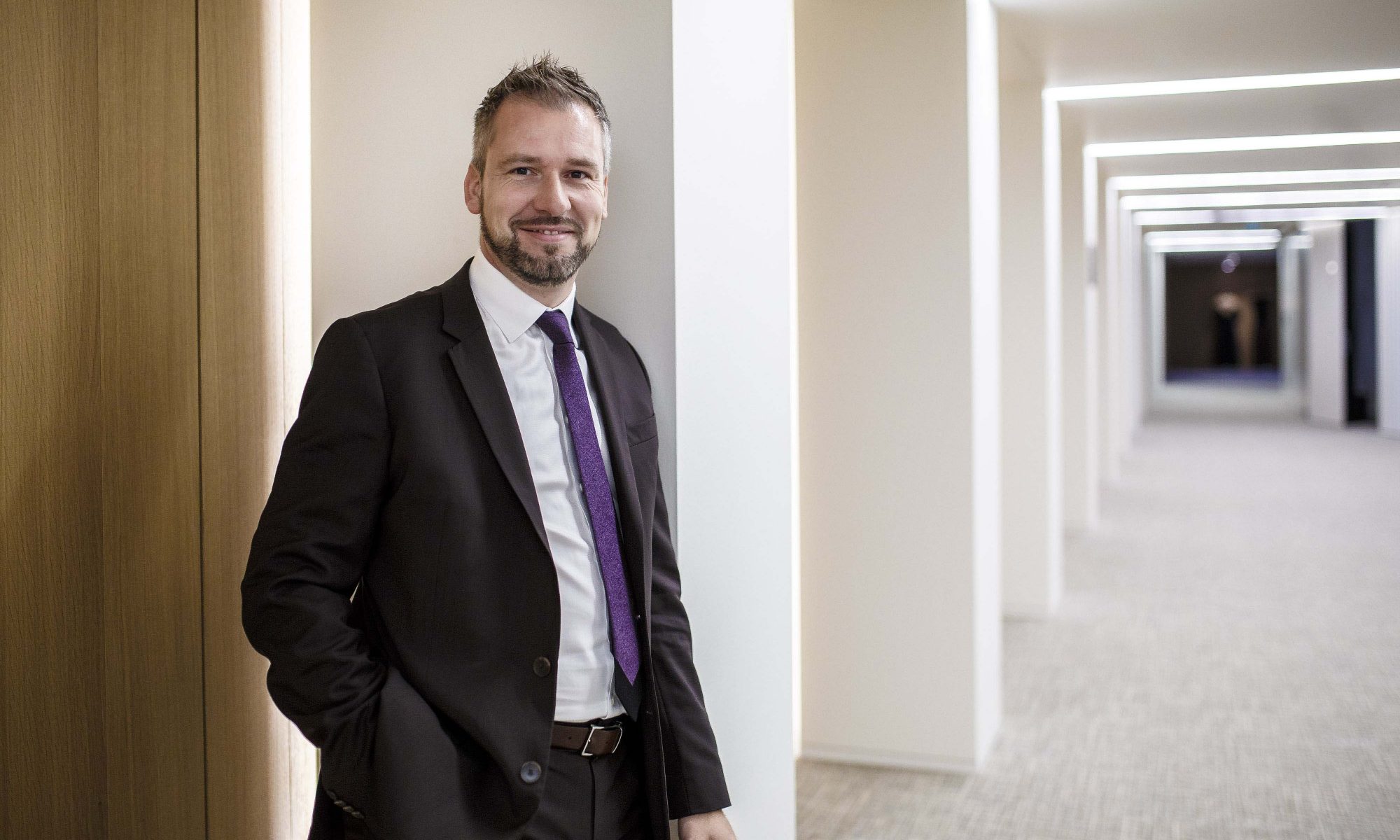You’ve landed your first job – what are the dos and don’ts?
Michaël Blino joined the Human Resources department of Banque Internationale à Luxembourg in 2000 after gaining a degree in statistics. After ten years or so as an HR data analyst, in 2011 he moved into recruitment at the bank, becoming Senior HR business partner. This dynamic forty-something embodies the idea we have of a successful career, having shown the ability to reinvent himself within a company that allows for such flexibility. That’s a good reason to invite Michaël to talk to us about his work and to share his tips with you for making a successful start to your professional life.
What do you think is the best strategy for young graduates to adopt when looking for their first job?
You need to make intelligent and targeted job applications. The aim is not to send your CV everywhere at all costs. In the new technology era, the best way to optimise your application and increase your chances of success is to rely on digital media and social networks. These are indispensable for candidates and recruiters alike. Personally, I’m happy for candidates to contact me directly on LinkedIn to draw my attention to their applications.
On the other hand, candidates really must avoid “overselling” themselves and inventing skills they don’t possess. Some candidates do occasionally embellish their CVs. You can tell yourself that, unfortunately for them, the truth always comes out. So it’s better to be as honest as possible, without putting yourself down!
What do you focus on in particular during the first interview with a candidate?
The first key point is that candidates should know what they are applying for. I need to get the feeling that the candidate has taken the time to prepare for the interview and has researched the position and the bank. That is the basis for a serious interview. Of course the interview will then allow me to provide the candidate with more detailed information about the job. I also pay attention to the way candidates present themselves. By that I mean that both the presentation and the personality of the candidate must be suited to the vacancy. The position we are looking to fill will determine my expectations.
I also place great importance on a candidate’s ability to learn and evolve, whilst trying to find out how likely they are to generate new ideas. We don’t just recruit candidates for who they are today, but also (and maybe especially) for who they may become within the company.
What is the most common error among candidates or young recruits?
What we see on a recurring basis is young recruits wanting to show what they can do too quickly. Let’s be clear, if we have recruited them, it’s because they have something to offer the bank. But often they don’t listen closely enough to their more experienced colleagues, and that can create friction. When you join a structure, an organisation that was there 160 years before you arrived, you should show some respect for it. Which doesn’t mean keeping quiet about any improvements you think could be made, either.

Once you start the job, the first weeks are often decisive and there is an enormous amount of information to assimilate. What is the best attitude to adopt to make a success of those early days within the company?
Taking notes is clearly the priority. The first days are such an assault on the intellect that it’s impossible to memorise everything. As the saying goes, spoken words fly away, written words remain. So taking some serious notes will stand you in good stead when it comes to assimilating the flood of information. I recommend that every new member of staff do this, irrespective of their level of experience.
The second very important point for new arrivals is to ask questions about anything that is not clear. Do not hold back, there are no wrong questions in this situation.
For many years, BIL has run a programme to help all new staff members settle in, not just young people. Each new arrival is allocated a “mentor” to advise them during the first year; this will be someone with no direct hierarchical ties from a different business line. We have had excellent feedback on this programme.
We often talk of a candidate’s first 100 days, referring to that sort of honeymoon period where the candidate’s enthusiasm mingles with the new company’s optimism.
I read the following phrase in an interview with one of your colleagues: “The first three months in a new job are a continuation of the job interview”. Do you agree with this idea?
Yes, that seems more or less right to me. We often talk of a candidate’s “first 100 days”, as in politics, referring to that sort of honeymoon period where the candidate’s enthusiasm mingles with the company’s optimism for its new member of staff. What’s more, we need to use this wave of goodwill on both sides to help the candidate settle in and promote the skills seen in interview. But this period must also bring proof that the young recruit can achieve convincing results and matches up to the promise they showed in their interview.
There are an enormous number of cross-border workers from France, Belgium and Germany in the Grand Duchy. What advice can we give them to help them settle in professionally?
I don’t think there is any particular advice we can give them, apart from being prepared for the cosmopolitan nature of the country. Every morning many of us cross our respective borders to come and work here and we bring with us our culture, our working habits and our mother tongue.
This means that in Luxembourg you sometimes find greater open-mindedness and a more marked appetite for innovation and diversity than elsewhere. Personally, I have worked here for more than years and I still love this diverse environment. It is a real strength. What’s more, recruitment has become considerably more international in recent years with CVs coming in from increasingly diverse backgrounds.
In a banking institution like yours, which positions (or divisions) have the highest recruitment needs?
That depends very much on the strategic options chosen by the BIL group. We are a systemically important bank, which means there are constraints on recruitment, in particular as regards the CVs and skill-sets of staff in certain business lines. I am thinking specifically of sectors linked to regulation and risk analysis, where we have recurring recruitment needs. And then as a banking institution, we are constantly looking for candidates with sales experience in different fields – Retail, Corporate Institutional Banking and Wealth Management – across the various markets. So that’s where our hiring priorities lie today.


 Mortgage
Mortgage Personal loan
Personal loan Savings
Savings